The NCTC imbroglio is symptomatic of a whole host of issues that will come up in the future, which impinge on the federal structure of our polity, writes Bharat Bhushan
The government has "won" the first bout against the opposition parties on setting up the National Counter Terrorism Centre.
This technical victory was underlined by the walkout during the vote on amendments to the President's address to Parliament by Trinamool Congress and the Bahujan Samaj Party, who although opposed to the NCTC order, allowed the government to save face.
This was no victory. It was a desperate bid to avoid public embarrassment.
After all, the prime minister has had to assure the Lok Sabha that the NCTC, which came into existence on March 1 this year, will not be "commissioned" till April 16 -- after he holds consultations with the chief ministers.
Bharat Bhushan is a senior editor based in New Delhi
...
States have forced the Centre to swallow its pride
Having put the cart before the horse, the government has now been forced to go back to square one. This is, in fact, a victory for the opposition.
The states have forced the Union government to swallow its pride and come to the negotiating table after dissecting its NCTC order to point out its constitutional and other flaws.
The Union government claimed in the preamble of the NCTC order that 'a review of the current architecture of counter-terrorism has revealed several gaps and deficiencies'.
However, never once did it share with the states what these weaknesses were or where their policing techniques were found to be deficient.
...
Why wasn't information shared with states?
The states argue that it was imperative for the Centre to share this information with them, before it created a body which would take over the intelligence and investigative functions of the state police.
The Centre's executive order to set up the NCTC was ostensibly within the extent of powers of the Union vested under Article 73(1) (a) of the Constitution.
This article, defining the executive powers of the Union government, says that its powers would extend to all matters on which Parliament can make law but will exclude those subjects on which the state assemblies have the power to legislate. These are subjects both in the state and the concurrent lists.
Public order, criminal procedure and preventive detention, for reasons connected with the security of the state, are subjects which fall either exclusively in the domain of the states or in the concurrent list.
...
Centre should have attempted to move a fresh legislation not an order
Therefore, if the Union government wanted to set up the NCTC, it should have attempted to move a fresh legislation in Parliament -- even though some states might have still objected to such legislation -- rather than through an executive order.
The states have also pointed out that although the preamble says that it is necessary and desirable that the proposed NCTC should not duplicate the role of other agencies and that it should work through the existing agencies in the country, the order itself would result in NCTC duplicating the role of the state police machinery.
In fact, the order permits interference by the NCTC at every stage from the collection of intelligence and evidence right up to the completion of the investigation.
The order "mandates" that other agencies must pursue leads which are different from those being followed by the NCTC.
This is being interpreted as the NCTC both subordinating the state agencies as well as likely to de-motivate their police forces. The order also directs "all civil authorities" to act in aid of the NCTC.
...
Centre is potentially creating a Frankenstein's monster, feel states
Many states believe that such powers of mandates and prescriptions or control over civil authorities have not been provided even in the National Investigative Agency Act, 2008 or the Unlawful Activities (Prevention) Act, 1967. It has created an apprehension in the mind of the states that the Centre is potentially creating a Frankenstein's monster.
The creation of the NCTC might also have undesirable implications for the present Intelligence Bureau. The NCTC is meant to be under the IB. This is perhaps because the IB is the only security outfit of the Union, which can operate even in the states.
However, some states have pointed out that the NCTC order changes the nature of the IB.
The IB has no police powers, but the NCTC has been given the power to investigate, search, seize and arrest. Intelligence experts point out that while this indirectly gives police powers to the IB, now the IB officials may be summoned by courts in cases filed by the NCTC. The immunity of the IB from RTI may also now end as the NCTC activities would be subject to public scrutiny.
...
No attempt was made to generate a political consensus
There is a provision in the NCTC order for a standing council with representation from the states, which will help coordination between the Centre and the states.
The states, however, claim that no details have been given of the standing council and they fear that it has been proposed as a mere formality.
They might be more amenable if the functioning of the NCTC was more clearly defined and its powers circumscribed through the standing council.
Apart from these problems with the proposed act itself the states are also upset that no attempt was made to generate a political consensus through a dialogue with the chief ministers.
The home secretary's alleged remarks at the chief secretaries meet on the NCTC on March 12, that they should not act as "stenographers to the chief ministers" shows a lack of understanding of the political dimensions of the issue.
...
Congress suddenly finds itself at sea
Bureaucrats are not the political masters of the peop#8804 their elected representatives are. Therefore, hoping for a consensus among IAS and IPS officers as a substitute for dialogue with the political leadership of the states shows a complete disregard for the federal nature of our polity. This is precisely what the states are protesting against.
The NCTC imbroglio is symptomatic of a whole host of issues that will come up in the future, which impinge on the federal structure of our polity.
There are laws being passed by Parliament which have financial implications for the states (eg the cost-sharing under the Right to Free and Compulsory Education Act of 2009); laws that are meant to be uniformly applied to all states irrespective of their local needs (rehabilitation facilities to be provided under the Land Acquisition, Rehabilitation and Resettlement Bill and the uniform system of implementing the National Food Security Bill); and laws which should not be enacted by the Centre at all on subjects in the States List (e.g. the Citizen's Grievance Redressal Bill and the Electronics Service Delivery Bill relate to services to be provided by the States and yet Parliament is enacting laws on these subjects).
All of them have the potential to foment trouble between the states and the Centre in the days to come.
The Congress party, unused to being opposed by the states, suddenly finds itself at sea when challenged by the issues of federalism being raised by the parties which govern the regions.
It has to wake up to the reality where the states will increasingly be governed by political parties which do not share the perspective of those who rule the Centre. Nothing can be done through fiat by the Centre any longer because there is no acceptance of any one party being the sole repository of national interest.
The only way to move forward would by strengthening the federal character of the polity through political dialogue and consultation.
Click on NEXT to go further...
TOP photo features of the week
...

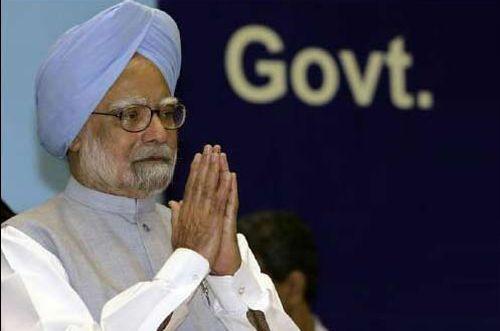
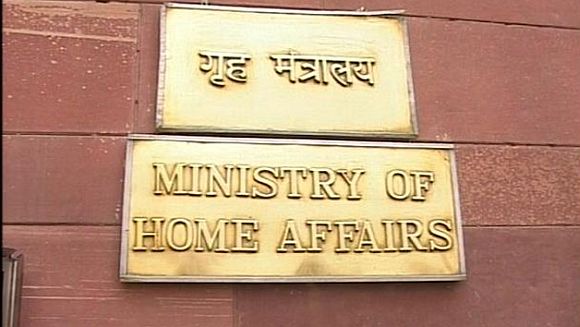
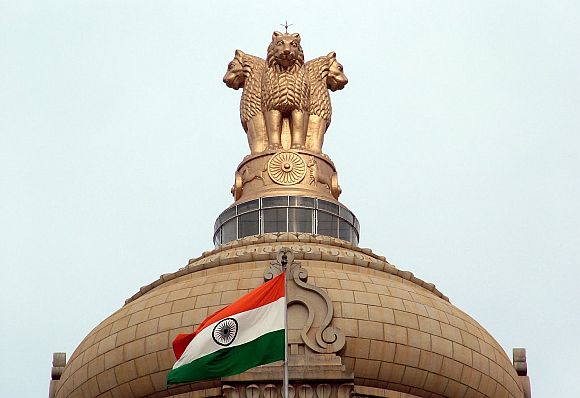
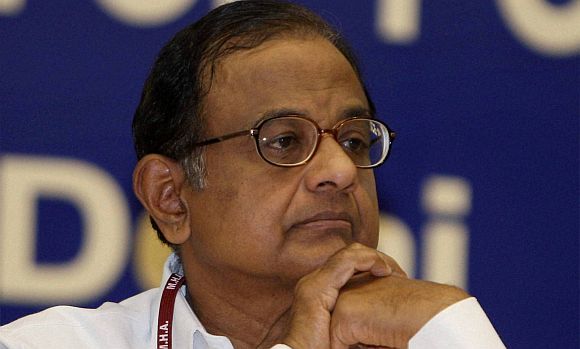

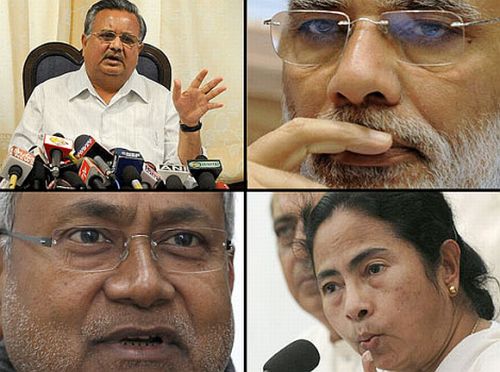
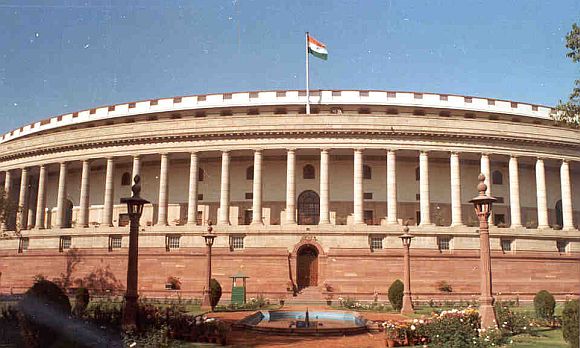
article